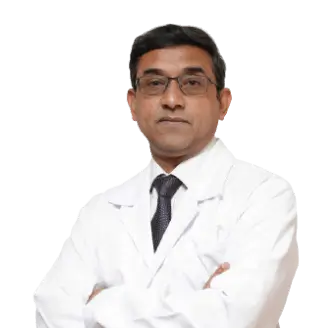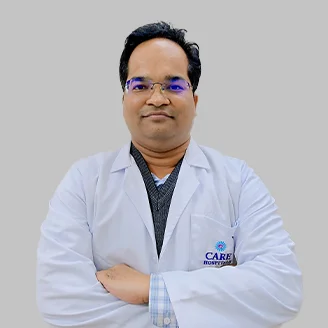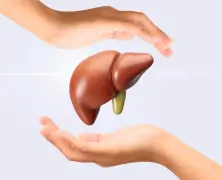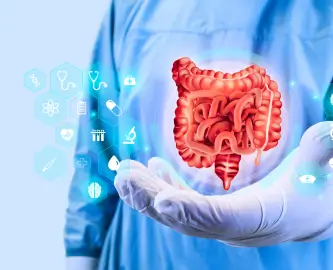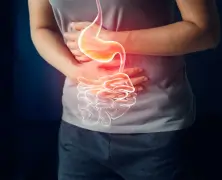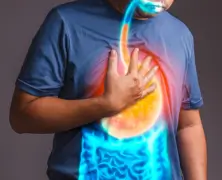Best Gastroenterology Hospital in Indore, Madya Pradesh
Gastroenterology involves a thorough understanding of how the gastrointestinal organs function normally. This includes the movement of food through the stomach and intestines, the elimination of waste from the system, the digestion and absorption of nutrients into the body, and the role of the liver in the digestive process. The field encompasses prevalent and serious diseases such as gastric reflux disease (GERD), hepatitis, gallbladder and biliary system diseases, colitis, nutritional problems, irritable bowel syndrome, and pancreatitis.
What is Gastroenterology?
Gastroenterology focuses on gastrointestinal diseases. It is the study of the normal function and diseases of the oesophagus, small intestine, rectum, pancreas, gallbladder, stomach, bile ducts, and liver. These are the body parts that are most frequently affected by gastrointestinal illnesses, which impact the digestive system, including the mouth and oesophagus. Additionally, it includes the organs of the biliary system, which deliver bile and digestive enzymes to the intestines. The organs of the biliary system include the liver, bile ducts, pancreas, gallbladder, and pancreas. The doctor who takes care of these organs is called a gastroenterologist.
A gastroenterologist has a detailed understanding of the normal physiology of all the organs related to gastrointestinal conditions. In addition, they must also have a clear understanding of the following:
- Gastric ulcers (open sore or raw area in the lining of the stomach or intestine)
- Achalasia (a rare swallowing disorder )
- Colon polyps (a growth on the inner lining of the colon)
- Peptic ulcer disease (sore on the lining of the stomach, small intestine or oesophagus)
- Pancreatitis (the redness and swelling of the pancreas)
What are Types of Gastrointestinal Problems?
The following are the types of gastrointestinal problems:
Irritable Bowel Syndrome: Irritable bowel syndrome is a functional disorder that causes the intestinal muscles to contract frequently. IBS might be caused due to certain medications, meals, emotional stress, etc.
- Haemorrhoids: Your anal canal has dilated veins that are called haemorrhoids. It is a structural condition caused by excessive pressure from bowel movement straining, pregnancy, or recurrent diarrhoea. There are two types of haemorrhoids - external and internal.
- Anal Fissure: Anal fissures are breaks or cracks in the anus' lining, caused by excessively hard or wet faeces. In an anal fissure, the muscles that regulate bowel movement, as they pass through the anus and out of the body, are exposed by the gap in the anal lining. It is a highly painful condition a patient can have. This is because the exposed muscles might become swollen from exposure to air or excrement, which might cause infection. After bowel movements, this causes excruciating burning, itching, pain, bleeding, or spasms.
- Perianal Abscesses: Perianal abscesses are small, pus-filled anal glands that cause pain and irritation in the anus. This occurs when the anus becomes blocked due to an infection. The pus is drained at the clinic under local anaesthesia.
- Colitis: There are various forms of colitis, which are illnesses that result in intestinal inflammation. Symptoms of colitis include diarrhoea, abdominal pain, rectal bleeding, and an urgent need to empty the bowels.
- Diverticulosis: It is the development of small protrusions (diverticula) in the muscular wall of the large intestine, forming weak spots in the gut. It typically develops in the sigmoid colon, a high-pressure region of the lower large intestine.
- Anal Fistula: Following the drainage of an abscess, an anal fistula often develops. It's a tube-like channel that connects the anus opening to a hole in the skin of the anal canal. Itching and irritation are usually caused by bodily wastes being channelled into the anal canal and exiting through the skin.
What Causes Gastrointestinal Disorders?
The following are the causes of gastrointestinal disorders -
- Bacteria
- Virus
- Parasite
- Autoimmune disorders
- Use of non prescription NSAID and other drugs
- Alcohol etc.
How are Gastrointestinal Disorders Diagnosed?
A gastroenterologist conducts a physical examination before ordering tests. They may perform a rectal examination by inserting a finger or palpating and listening to your abdominal organs externally. They could request additional tests as follow-ups, including blood or stool tests, or imaging scans like GI X-rays to assess the severity of the condition. They might also recommend an endoscopy for a more detailed inspection.
Endoscopic examinations offer gastroenterologists a comprehensive view inside the body, enabling them to evaluate the severity of the condition and determine its cause. Additionally, they might employ miniature instruments passed through the endoscope to obtain tissue samples and perform minor procedures. Consequently, gastroenterologists may utilise endoscopy as a preliminary step before considering surgery as a treatment for your condition.
How Gastrointestinal Disorders are Treated with Gastroenterology?
At times, treating certain gastrointestinal issues can be as simple as modifying your food and lifestyle. If diet and lifestyle modifications are not effective, the doctor will likely recommend tailored medication for the situation.
In the case of a bacterial infection, antibiotics might be prescribed. However, managing pain and other symptoms of chronic, lifelong illnesses may require several medications. The following list of drugs is used to treat various digestive conditions:
- Antacids for heartburn
- Medications for treating persistent diarrhoea
- Antidepressants to alleviate IBS symptoms
- Prescription drugs for anxiety-related problems
- Laxatives or stool softeners for persistent constipation
Each treatment depends on the type of gastrointestinal disease. Thus, the doctor diagnoses and then plans the treatment accordingly.
CARE CHL Hospitals, Indore is among the foremost and best gastroenterology hospitals in Indore. We are dedicated to treating gastrointestinal disorders in patients of all ages. Our team of gastroenterologists proficiently manages both medical and surgical gastroenterology. Additionally, we are equipped with state-of-the-art technology to ensure that patients receive proper care and gastroentrology treatment in indore.



